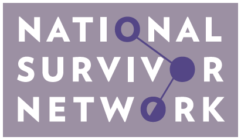April 14, 2023
Krüsi A., Pacey K., Bird L., et al. Criminalisation of Clients: Reproducing Vulnerabilities for Violence and Poor Health Among Street-Based Sex Workers in Canada—A Qualitative Study, BMJ Open, (2014). https://bmjopen.bmj.com/content/4/6/e005191
Findings from Advocating Opportunity’s “END DEMAND LITERATURE – DESK REVIEW” (Compiled by: Emily Dunlap, Komal Hans, and Donna Hoffman with contributions from: Kate D’Adamo and Megan K. Mattimoe):
Summary:
“…[W]hile police sustained a high level of visibility, they eased charging or arresting sex workers and showed increased concern for their safety. However, participants’ accounts and police statistics indicated continued police enforcement of clients. This profoundly impacted the safety strategies sex workers employed. Sex workers continued to mistrust police, had to rush screening clients and were displaced to outlying areas with increased risks of violence, including being forced to engage in unprotected sex.” “These findings suggest that criminalization and policing strategies that target clients reproduce the harms created by the criminalization of sex work, in particular, vulnerability to violence and HIV/STIs.” (p. 1) (emphasis added).
Findings:
“For participants in this study, the reality of living in poverty and marginalization often combined with illicit substance use meant that even when police target clients, sex workers report that they continue to work for the obvious reason of earning an income.” (p. 5).
“Police enforcement of clients had no effect on deterring women from engaging in street-based sex work… impeding sex workers’ ability to engage with potential clients did not result in less street-based sex work for these women. Instead, having access to fewer clients meant it was harder to earn an income and forced sex workers to accept clients or services (eg, sex without a condom) that they would otherwise reject due to safety concerns; this directly increased risks for physical and sexual violence and poor health, including HIV and STIs.” (p. 5) (emphasis added).
Findings indicate that criminalization and policing strategies that target clients reproduce the harms created by broader criminalization of sex work. Analyses of prevalence of workplace
physical and sexual violence against street-based sex workers in Vancouver indicated no statistically significant change in violence rates following policy implementation.” (p. 5).
“Policing of clients thus directly undermines sex workers’ ability to screen potential clients including checking ‘bad date’ sheets for past violent perpetrators, detecting possible weapons or
intoxication, and negotiating the terms of the sexual transactions, including where the date will take place, the fee and types of sexual services and use of condoms, before entering a vehicle. These practices… have been well documented as critical to sex workers’ ability to control their health and safety.” (p. 6).
“Participants reported that being alone with clients in often unknown, secluded, industrial areas where there is little chance for help puts women at increased risk of violence and rape and reduces their ability to negotiate the transaction on their terms, elevating their risks for client condom refusal and thus HIV/STIs.” (p. 6) (emphasis added).
Methodology:
31 street-based sex workers (26 cisgender and 5 transgender women) “participated in semi-structured interviews about their working conditions. All had exchanged sex for money in the previous 30 days in Vancouver.” (p. 1)
“Interview participants were recruited through purposive sampling from the longitudinal cohort (AESHA), and aimed to reflect variation in demographics (eg, age, ethnicity and gender) and work environments (eg, geographic neighborhoods, variation in street and off-street solicitation and transaction spaces)” (p. 3).
Background:
“Enforcement-based approaches and policing within criminalized frameworks have consistently been linked to elevated risks for violence, and reduced ability to negotiate safer sex transactions, including prevention of HIV and other STIs.” (p.2).
“Criminalization and policing force sex workers to rush or forgo screening prospective clients or negotiating the terms of sexual transactions before entering a vehicle, placing sex workers at increased risk of physical violence, rape and HIV/STIs. Criminalization of sex work also impedes access to safer indoor work environments, particularly for those most socially and economically marginalized.” (p. 2).
“The primary objective of the law is to eradicate prostitution by eliminating demand. However, evidence from Sweden indicates that the law has been unsuccessful in meeting this objective. Instead, a number of unintended consequences have been reported—namely, that it drives sex workers and clients underground to more clandestine locales and is difficult to enforce due to the unwillingness of sex workers to testify against their clients.” (p. 2) (emphasis added).
“The continued police enforcement of clients severely limited any positive impact of this change on their overall working conditions, risks for violence, abuse or negotiation of sexual risk reduction with clients.” (p.4).
